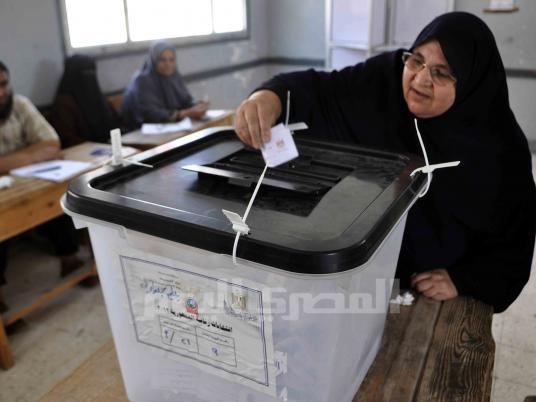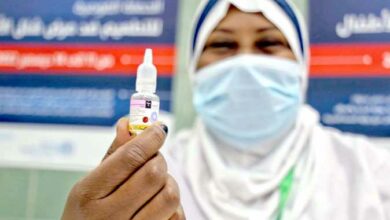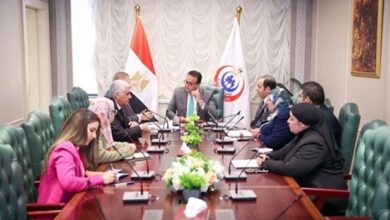
Thousands of doctors, pharmacists and veterinarians staged a partial nationwide strike in protest of the Health Ministry's ignoring of their demands.
Demands include an increase in the state's health budget to provide better incentives, working conditions and health care tools for doctors, as well as a new administrative and financial cadre for doctors.
Governmental hospitals, pharmacists, veterinary quarantines and slaughterhouses participated in the strike, while university, police and armed forces hospitals did not. The departments of emergency operations, hemodialysis, intensive care unit, burns, incubators and fever were also exempted from the strike.
Non-urgent medical services were scaled down, according to a decision made by the general assembly of the Doctors Syndicate about staging the strike on 1 and 8 January.
Doctors accused heads of governmental hospitals and several governorates of pressuring the striking doctors to resume work.
Strike participation at Cairo, Giza and Daqahliya hospitals reached 100 percent. Doctors of external clinics at all hospitals staged a strike at all public hospitals that also reached 100 percent, according to doctors.
Health Ministry Spokesperson Dr. Mohamed Fathallah offered different sentiments regarding strike numbers. Fathallah told Al-Masry Al-Youmthat doctor participation in the strike is low, with only some clinics in a few governorates participating.
Mohamed Saudi, deputy pharmacist syndicate and head of operation chamber following the partial strike, said the pharmacists’ strike in all ministry-affiliated setors reached 85 percent. Pharmacists are being pressured to end the strike and open pharmacies, he said, adding that the syndicate gave instructions on selling medicines to emergency cases.
Beni Suef hospitals also had a unanimous strike, prompting hospital administrations to operate medical service vehicles across the governorate to help emergency cases, but pharmacists refused to get on the vehicles without tight security, Saudi said. He accused the ministry of adopting marginalization policies towards the rights of pharmacists, adding that the pharmacy will refer anyone who violates the strike to a disciplinary board.
Ahmed Medany, general coordinator of Bedaya movement for health insurance workers, said health insurance doctors will take escalatory moves starting with a Wednesday strike across Egypt after officials ignored demands.
Sami Taha, chief of the Veterinarians Syndicate, said the strike at quarantines reached 35 percent, and included around 400 abattoirs and eight quarantines. He added that unemployment among veterinarians has reached 16 percent.
Edited translation from Al-Masry Al-Youm




